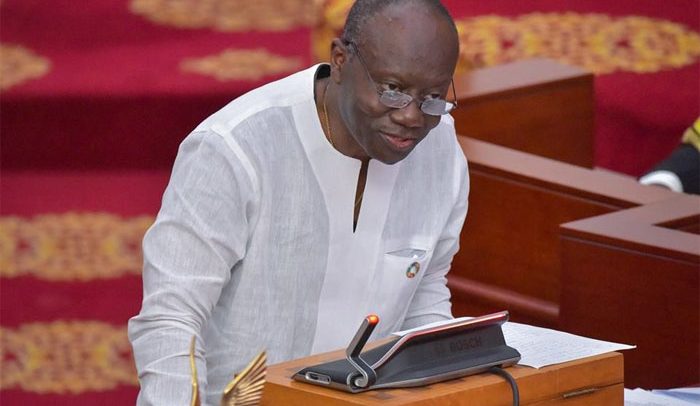Ken Ofori-Atta, Finance Minister
PARLIAMENT ENDORSED a request for the suspension of the Fiscal Responsibility Rules for the 2020 financial year to allow the Finance Minister to exceed a deficit of five per cent of the country’s gross domestic product (GDP).
The request was laid in the House on Wednesday by the Minister of Parliamentary Affairs, Osei Kyei-Mensah-Bonsu, on behalf of the Minister of Finance.
Section 2 of the Fiscal Responsibility Act, 2018 (Act 982) enjoins the government to annually observe that the overall fiscal balance on cash basis for a particular year does not exceed a deficit of five per cent of the GDP for that year while an annual positive primary balance shall be maintained.
Act 982 also provides in Section 3 (1) that the Minister for Finance may suspend the fiscal rules due to a force majeure or unforeseen economic circumstances or both.
The Section 3 (3) further provides that where the minister, in accordance with subsection (1), suspends the fiscal responsibility rules, the minister shall, within 30 days, present before Parliament for approval facts and circumstances for the suspension of the set fiscal responsibility rules in a given financial year.
The minister must also present plans for restoring the public finances of the country within a reasonable period after the force majeure or unforeseen economic circumstances have elapsed; and a quarterly breakdown of the revised deficit target for the year as part of the budget presented to Parliament.
During the presentation of the 2020 Mid-Year Budget Review and Supplementary Estimate to Parliament on July 24, 2020, Ken Ofori-Atta informed Parliament that he had suspended the fiscal rules in accordance with Section 3 (1) of the Fiscal Responsibility Act, (Act 982) in light of the Covid-19 pandemic.
Observations
Chairman of the Finance Committee, Dr. Mark Assibey Yeboah, said members of the committee observed that the Covid-19 pandemic had affected virtually all countries globally and every aspect of the Ghanaian economy.
“The slowdown in economic activities has led to a drastic downward revision in the growth of real GDP from 6.8% to 0.9 per cent, an estimated revenue shortfall representing 3.5% of GDP,” Dr. Assibey noted.
He indicated that an additional expenditure was anticipated to contain the impact of the pandemic. This represented 3.1 per cent of GDP, an upward revision of the cash-basis fiscal deficit from GH¢18.9 billion (4.7 per cent of GDP) to GH¢44.1 billion (11.4 per cent of GDP); and a revision in the primary balance from a surplus of GH¢2.8 billion (0.7 per cent of GDP) to a deficit of GH¢17.8 billion (4.6 per cent of GDP).
He said the committee was informed that given the impact of the pandemic, it was clear to the Minister of Finance that the fiscal rules of a deficit not exceeding five per cent of GDP and a positive primary balance as enshrined in the Fiscal Responsibility Act were neither feasible nor attainable.
By Ernest Kofi Adu, Parliament House


